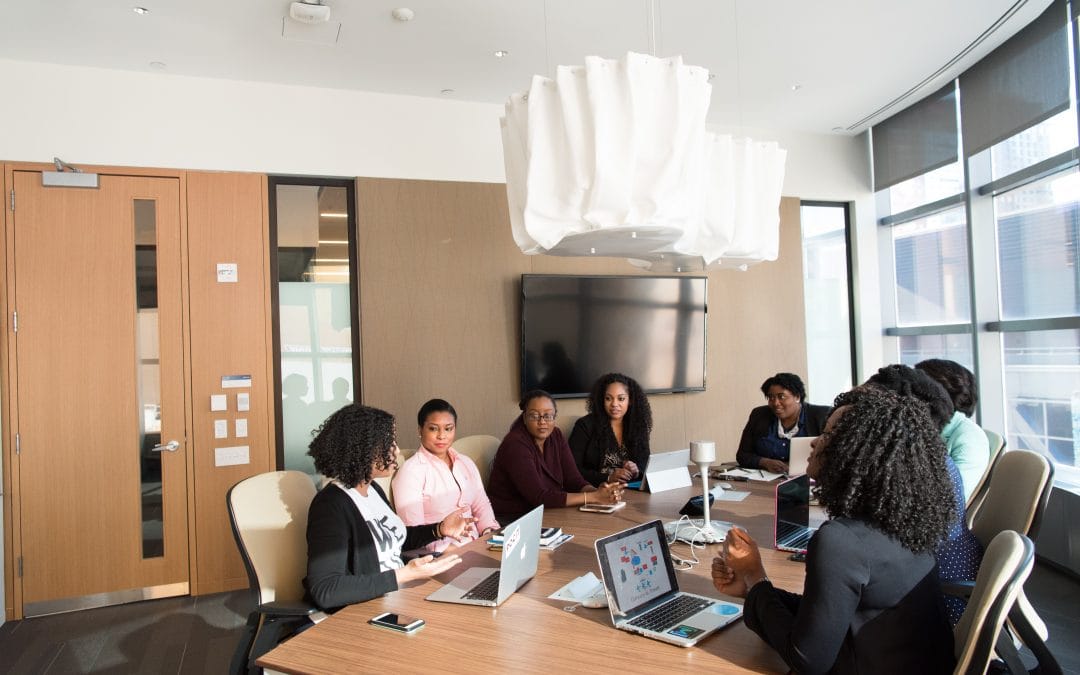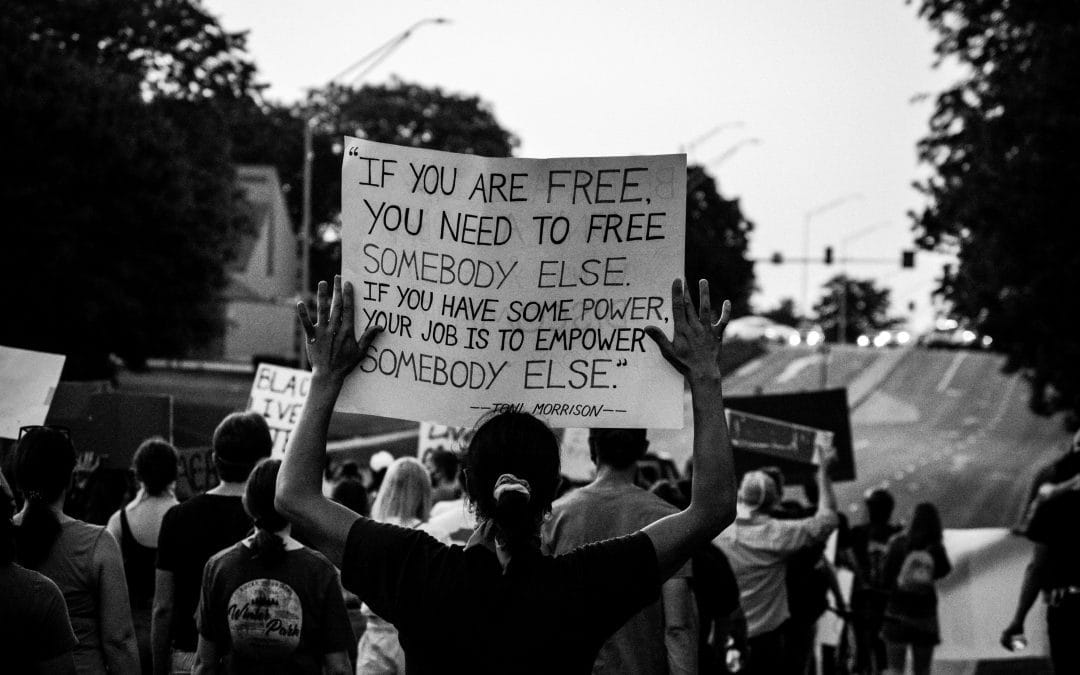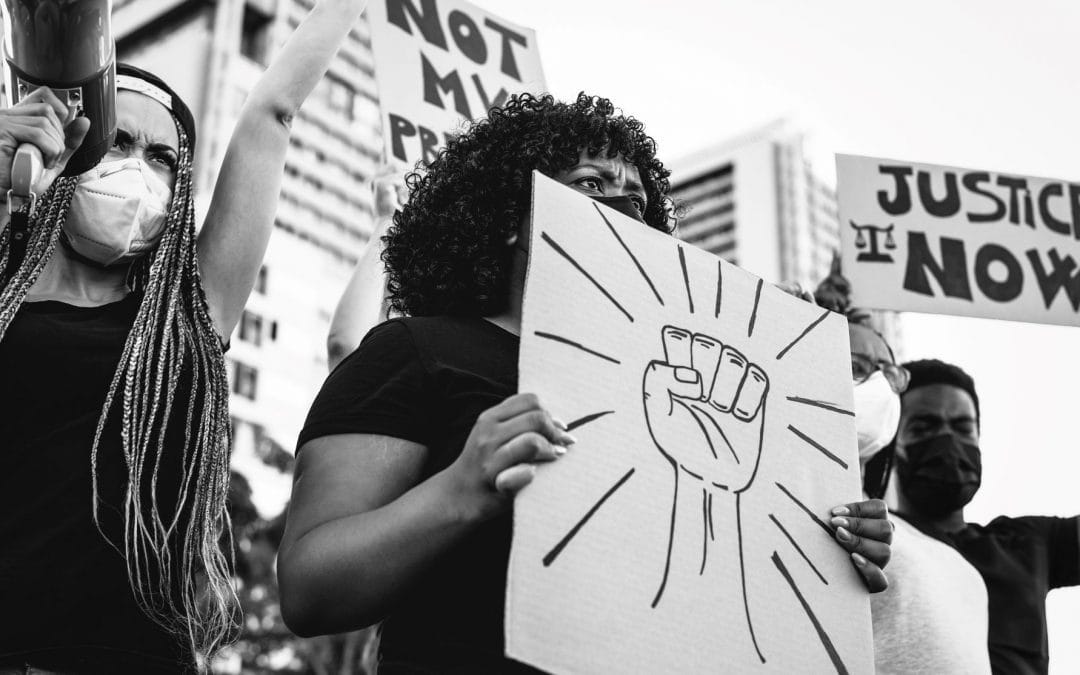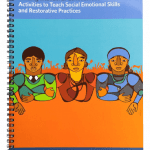What is Dominant Culture?
At Be the Change Consulting, we define dominant culture as the practices and beliefs that form the blueprint for behavior. Inside an organization, the dominant culture sends messages to team members about what is important, valued, and rewarded. These messages can be shared explicitly and directly or implicitly in ways that are implied. Creating intentional culture that is clearly expressed and reinforced in a variety of ways is an important step toward building equity and inclusion.
Have you ever heard these phrases at work?
- “Let’s be professional.”
- “That wasn’t respectful.”
- “Please be appropriate.”
Let’s think critically about these for a moment. What ideas come to mind when we hear these common statements? Who defined the expectations for what is considered “professional,” “respectful” or “appropriate?” When and where did we agree to these definitions?
When asked to reflect on what these common terms mean, different people have different opinions. , So the expectations about what it means to behave in a professional or appropriate way change depending on who you ask. In this way, our organizations are held together by agreements that are often invisible. , If the majority of leaders who make the invisible rules are white, male, cisgendered or hold other identities aligned with dominant culture, than there is often a negative impact for those holding non-dominant identities. Dominant culture, as created by those whose identities are most often centered, can be really hard to see or define. Like oxygen, it can become invisible even though we interact with it all the time.
Why Dominant Beliefs are Often Invisible
Here is a metaphor we use with clients. Imagine you are walking down the street, and a bus comes barreling down and hits you. Now imagine you are laying in the street, bleeding, and the bus driver comes up to you and says “what are you doing down there?” And you say “You hit me with your bus!”. And the bus driver says “No I didn’t, what are you talking about? When? Where? Prove it!” Now the person laying on the ground has to both attend to their wounded body, experience the frustration caused by this bus driver, and figure out how to describe something that was so visceral and painful to them, but completely invisible to the bus driver. That is a huge labor.
This is what happens when bodies of culture (Black-identified, Indigenous, or Non-Black people of color) are hit by dominant culture. Deep harm is caused and the people, systems and ideas that inflicted the pain cannot even see it.

The bus driver, from their vantage point, can’t see what’s going on down on the street, or maybe never walks anywhere, so doesn’t even know what the dangers to pedestrians are. But the people walking around on the street know all too well the dangers of the bus, and the powerful ignorance most bus drivers are operating with.
If this example is not resonating for you, you might be more like the bus driver in this example than the pedestrian. You might try sharing this metaphor with three people – perhaps a woman, a Black-identified professional, or anyone who identifies as neurodiverse, and see what they say. Their answers will be a wonderful gift of insight from another perspective.
Our favorite tool to make the aspects of dominant culture more visible is an article called White Supremacy Culture, produced by Dismantling Racism.
This article describes fifteen practices that are the root cause of most problems at work. Organizations are often eager to learn more about how these problems stem from a white supremacy belief system and what to do about it. The article describes dominant culture practices like Right to Comfort, Paternalism and Sense of Urgency. Reading them often gives organizational leaders very concrete examples to take in and get curious about.
Why Common Language is Critical for Antiracism Work
Without intentional language for the behaviors of white supremacy culture,, we have more busses driving out of control, and bus drivers that are unaware of the harm they cause Those of us who have been hit by a bus know that we’ll be expected to describe the accident and educate the one who harmed us. This is exhausting, builds resentment and distrust. Establishing a common language before a conflict, or “bus accident” occurs however, gets us all on the same page. We become equally responsible for ensuring our workplace is equitable and inclusive for all people. The common language we use around antiracism work, bridges the gap across places where we don’t have common experiences.
By giving language to our bus drivers, we can allow everyone in an organization, regardless of identity or position, to explore where dominant culture shows up. We can all hold the labor of naming and taming them together. Wouldn’t that be a relief?
Building Shame Resilience When Dominant Culture is Named
The work of visibilizing dominant culture in our organizations is bound to bring up guilt and shame for those who have positional or identity-based privilege. If we stay curious and open to learning, we will quickly realize many ways that privilege benefits us. , We’ll see the disproportionate impact on our teams, society, and the world at large. As an organizational leader myself, I often struggle to take in the learning, even when there is evidence of dominant culture practices at work.. I sometimes feel exhausted and embarrassed to get feedback around my own lack of awareness- there is so much to learn and unlearn! And the more I do this work, the more I realize that I can move from the heavy weight of embarrassment or shame into an empowered place. I can remind myself of the commitment to do better and not give up. I can breathe through big feelings that come up and build my tolerance for feeling uncomfortable. The more I practice listening to how I can do better, the more I am able to take action and shift my behaviors.
How Privilege Makes it Hard to See the Harm We Cause
From time to time, we are asked to explain why we are using the research. A participant in a training will ask, “Where is this article from? Why are you using it and not something else?” To understand this work will require all of us to grapple with the content. We’re all learners here, engaging our critical minds and there is space to push back or ask questions to better understand the information..
For everyone in an identity that mirrors dominant culture – white people, cis-gendered men, able-bodied folks, those who speak English as a first language, or identify as part of the gender binary, etcetera… we can add our privileged identities in front of the questions we ask, so that we take responsibility for what we aren’t seeing. In those moments, we are driving the bus. And someone from the street is likely doing the labor to explain it to us. Part of making dominant culture visible, is making this kind of labor visible as well
Here is what I mean: Notice what happens when you hear this question: “As a white man, I would love to understand why visibilizing dominant culture is so impactful to antiracism work?” Can you feel the difference? As a woman of color, I definitely do! I want to know YOU know that you’re driving the bus.
The struggle to understand all of this is a productive struggle. Don’t give up!









